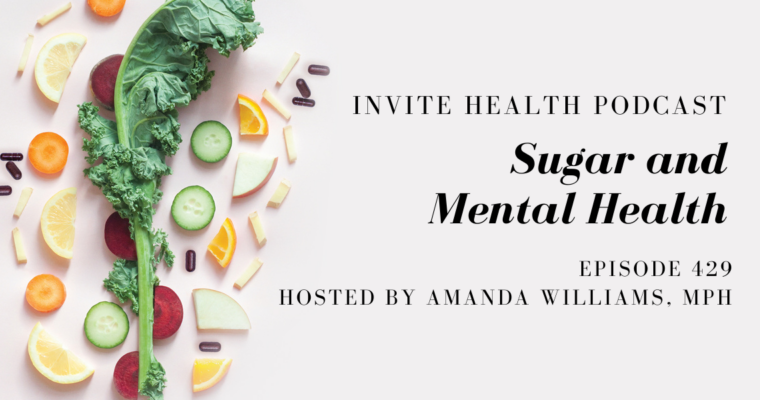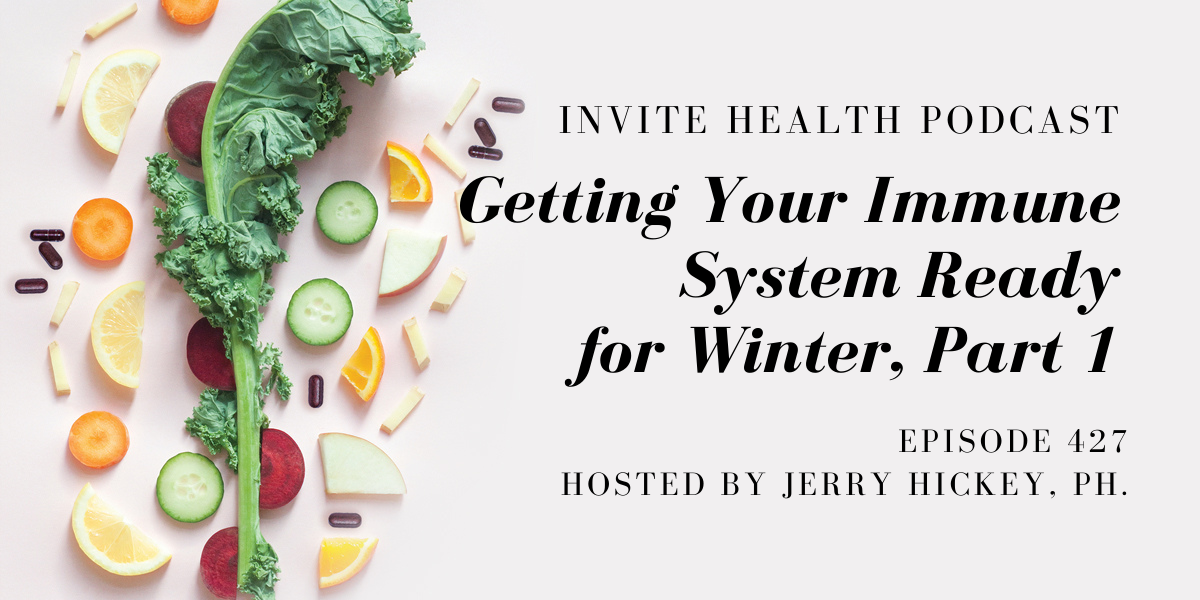winter
InViteⓇ Health Podcast, Episode hosted by Jerry Hickey, Ph.
Subscribe Today!
There are concrete reasons why we get sick with a virus more frequently in the winter than in the summer. The atmosphere itself directly contributes to the risk of getting sick. The air outside in the summer is a lot heavier because it’s loaded with moisture. If somebody sneezes or coughs, the virus only goes a short distance and it crashes down to the sidewalk because the air is so laden with moisture.†
In the winter, it’s a different story. In the winter, the air is very dry, so coughs and sneezes go further. A cough can shoot a virus for 10 feet at 100 miles per hour, while a sneeze travels at about half that rate for about five feet. It’s also very cold outside, so we are more frequently clustered together inside at a pretty close proximity. Inside, the air is even drier and more arid, so that sneeze or cough can really travel further or faster.†
BLACK ELDERBERRY OFFERS SUPPORT AGAINST THE COMMON COLD – INVITE HEALTH PODCAST, EPISODE 271. Listen Now>>
To make things worse, many viruses thrive in colder air. For instance, the flu and cold viruses are stronger and more infective in the winter than in the summer.†
There are some nutrients that are really key for our immune system. The problem is that there are seasonal variations in the levels of these nutrients in our body.†

Nutrient levels that decline in the winter
These nutrients are key for the immune system to be able to fight off an infection and to survive an infection. They are Vitamin C, Vitamin D and zinc. There are seasonal variations in the body’s levels of zinc, Vitamin C and Vitamin D. Just when you need them the most to fight the infections that are more common in the winter, the level of these nutrients are declining. This means that there’s less to go around in the blood plasma in the fall and winter months and this is very bad news for immunity.†
IMMUNE BENEFITS OF VITAMIN C, ZINC & VITAMIN D – INVITE HEALTH PODCAST, EPISODE 118. Listen Now>>
Zinc is needed in a number of ways for the immune system. This mineral is poisonous to viruses. Secondly, zinc is needed to create immune cells, as well as antibodies. Taking zinc in the winter is a very good strategy for helping to achieve optimal immune system function. I would shoot for about 30mg a day to help shoot up your zinc level.†
Just like zinc, our level of Vitamin C declines in the winter. Vitamin C is required for chemotaxis and respiratory burst, which are really important activities for your immune system. This occurs early on when someone sneezes on you with an infection. Chemotaxis is the ability of your immune cells to travel to the site of the infection.†
What about Vitamin D? You’re never going to get enough Vitamin D from your food. You can get some Vitamin D by getting sun exposure, but there’s not a lot of sun in the winter. Plus, you’re covered up, so you really need to take a supplement. You need Vitamin D to help fight cancer, infections and other foreign cells. Generally, take 2000 units of Vitamin D3 a day. Research shows that taking Vitamin D every day works better than one huge dose once a week or once a month.†
In this episode, Jerry Hickey, Ph., discusses how the body can be more prone to infection during the fall and winter months. He focuses on three main nutrients that the body needs to protect itself and explains how these nutrients are impacted by the cold weather. Stay tuned for Part 2 of this podcast, coming soon.†
Key Topics:
- Flu season in different parts of the world
- What Vitamin C, Vitamin D and zinc do for the immune system
- How prescription medications can impact nutrient levels
Thank you for tuning in to the InViteⓇ Health Podcast. You can find all of our episodes for free wherever you listen to podcasts or by visiting www.invitehealth.com/podcast. Make sure you subscribe and leave us a review! Follow us on Facebook, Twitter and Instagram at InViteⓇ Health today. We’ll see you next time on another episode of the InViteⓇ Health Podcast.








